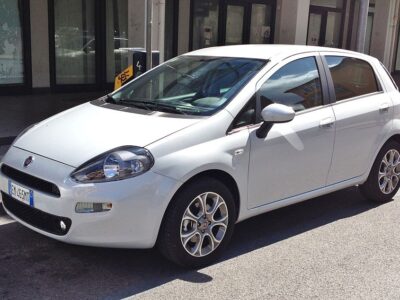
Addressing Brake Squeal Issues in the Fiat Punto
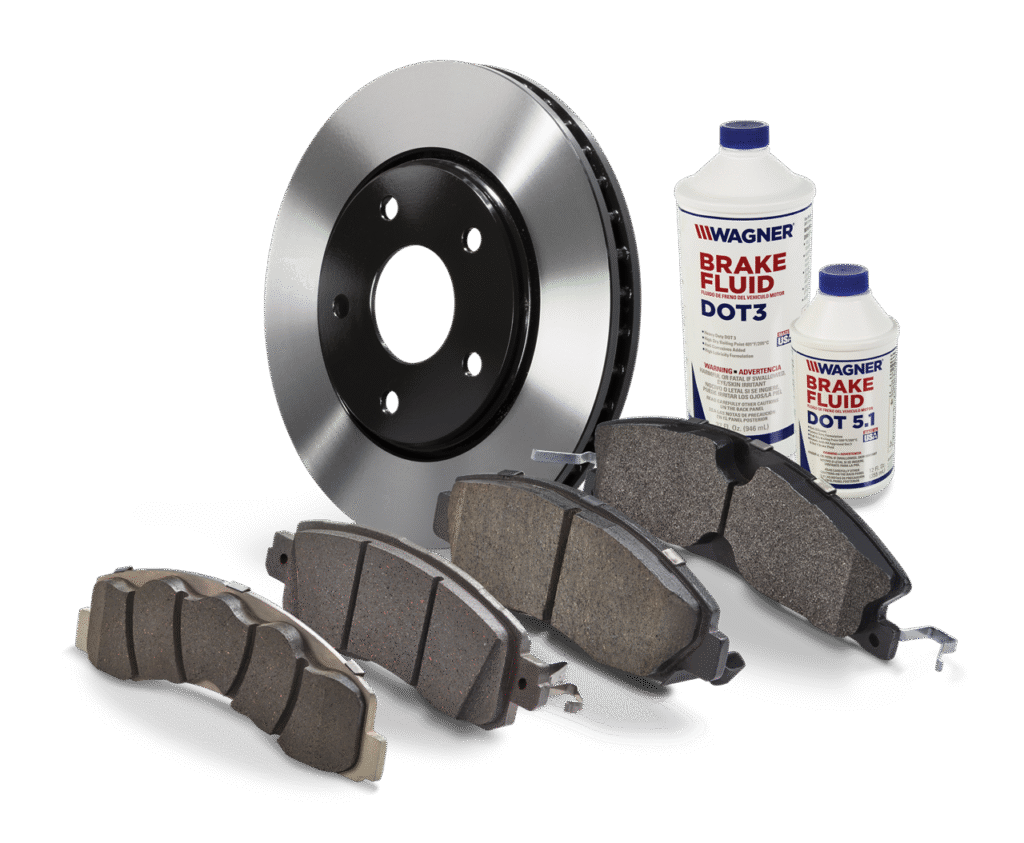
The Fiat Punto is a popular supermini car known for its reliability and performance, but like any vehicle, it's not immune to issues such as brake squeal. Brake squeal is a common problem that can be annoying and, in some cases, indicate a more serious issue with the braking system. Addressing brake squeal in the Fiat Punto requires a comprehensive understanding of the causes and effective solutions. This article will explore the reasons behind brake squeal in the Fiat Punto and provide guidance on how to diagnose and fix the problem, ensuring a quieter and safer driving experience.
Diagnosing and Resolving Brake Squeal in the Fiat Punto
The Fiat Punto is a popular model known for its reliability and performance. However, like any vehicle, it can experience issues such as brake squeal, which can be annoying and indicate a potential problem with the braking system. Brake squeal is a high-pitched noise that occurs when the brakes are applied, and it can be caused by a variety of factors.
Causes of Brake Squeal in the Fiat Punto
Brake squeal in the Fiat Punto can be attributed to several factors, including worn brake pads, warped rotors, or the presence of moisture or debris on the brake components. When brake pads wear down, they can cause the brake caliper to vibrate, resulting in a squealing noise. Similarly, warped rotors can cause the brake pads to vibrate and produce a squeal.
Maintenance and Repair to Address Brake Squeal
To address brake squeal, it's essential to inspect the brake system and perform any necessary maintenance or repairs. This may involve replacing worn brake pads, resurfacing or replacing warped rotors, or cleaning the brake components to remove any debris or corrosion. Regular maintenance, such as checking and replacing brake pads as needed, can help prevent brake squeal.
Upgrades and Modifications to Reduce Brake Squeal
In some cases, upgrading or modifying the brake system can help reduce or eliminate brake squeal. For example, installing high-performance brake pads or upgraded brake rotors can help improve braking performance and reduce the likelihood of squeal. Additionally, applying anti-squeal compounds or brake lubricants to the brake components can help reduce vibration and noise.
| Cause | Symptoms | Solution |
|---|---|---|
| Worn Brake Pads | Squealing noise when applying brakes | Replace Brake Pads |
| Warped Rotors | Vibration or pulsation when braking | Resurface or Replace Rotors |
| Moisture or Debris | Intermittent squealing noise | Clean Brake Components |
Can I spray WD-40 on my brakes to stop squeaking?

While WD-40 can temporarily silence squeaky brakes by lubricating the brake components, it is not a recommended long-term solution. WD-40 is a penetrating oil that is not designed for high-temperature applications like brake systems. When brakes are applied, they generate a significant amount of heat, which can cause the WD-40 to evaporate or break down, potentially leaving a residue that can attract dirt and dust.
Why WD-40 is Not the Best Solution for Squeaky Brakes
Using WD-40 on brakes may provide temporary relief from squeaking, but it does not address the underlying cause of the problem. Squeaky brakes can be due to worn-out brake pads, misaligned brake calipers, or other issues that WD-40 cannot fix. In fact, using WD-40 on brakes can even make the problem worse in the long run.
- WD-40 can compromise the effectiveness of the brake pads by leaving a residue that reduces friction.
- It can also attract dirt and dust, which can further exacerbate brake problems.
- WD-40 is not designed to withstand the high temperatures generated by the brakes, so it may evaporate or break down quickly.
Alternative Solutions to Stop Squeaky Brakes
Instead of using WD-40, there are other products and methods that are more suitable for addressing squeaky brakes. Brake lubricants or silicone-based sprays are specifically designed for use on brake components and can provide a more effective and long-lasting solution.
You may be interested in reading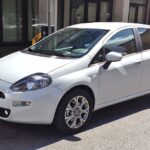 How to Deal with Fiat Punto Gearbox Bearing Failures
How to Deal with Fiat Punto Gearbox Bearing Failures- Brake lubricants are designed to withstand high temperatures and won't compromise the effectiveness of the brake pads.
- Silicone-based sprays can lubricate brake components without leaving a residue that can attract dirt and dust.
- Inspecting and maintaining the brake system regularly can help identify and address the root cause of squeaky brakes.
Proper Brake Maintenance to Prevent Squeaking
Regular maintenance is key to preventing squeaky brakes. This includes inspecting the brake pads, rotors, and calipers for wear and damage, and addressing any issues promptly. Proper brake maintenance can help ensure that the brakes function effectively and safely.
- Regularly inspect brake pads for wear and replace them when necessary.
- Clean the brake rotors and calipers to remove dirt and debris.
- Lubricate brake components with a suitable lubricant to prevent squeaking.
How do I get rid of brake squeal?

To get rid of brake squeal, you need to identify the root cause of the problem. Brake squeal is often caused by vibrations between the brake pads and the rotors. These vibrations can be due to worn-out brake pads, warped or uneven rotors, or the presence of debris or corrosion on the brake components. To address the issue, you can start by inspecting your brake system and cleaning the brake components.
Inspecting and Cleaning Brake Components
Inspecting and cleaning the brake components is a crucial step in eliminating brake squeal. You should check the brake pads for wear and tear, and replace them if necessary. Also, inspect the rotors for any signs of warping or excessive wear. Cleaning the brake components involves removing any debris or corrosion that may be causing the squeal.
- Use a wire brush to remove any loose debris or corrosion from the brake rotors and pads.
- Apply a brake cleaner to the brake components to remove any dirt or grime.
- Dry the brake components thoroughly before reassembling the brake system.
Using Brake Lubricants and Anti-Squeal Products
Using brake lubricants and anti-squeal products can help reduce or eliminate brake squeal. These products work by reducing the friction between the brake pads and the rotors, thereby minimizing the vibrations that cause the squeal.
- Apply a small amount of brake lubricant to the back of the brake pads to reduce friction.
- Use an anti-squeal spray or paste on the brake pads to dampen vibrations.
- Consider using brake pads with built-in anti-squeal features, such as noise-reducing coatings or shim materials.
Replacing Brake Pads and Rotors
In some cases, replacing the brake pads and rotors may be necessary to get rid of brake squeal. If the brake pads are worn out or damaged, replacing them with new ones can help eliminate the squeal. Similarly, if the rotors are warped or excessively worn, replacing them can help resolve the issue.
- Replace the brake pads with new ones that are compatible with your vehicle's brake system.
- Consider resurfacing or replacing the rotors if they are warped or excessively worn.
- Ensure that the new brake pads and rotors are properly installed and bedded-in to prevent future squeal issues.
Why are my brakes squeaking but pads are fine?
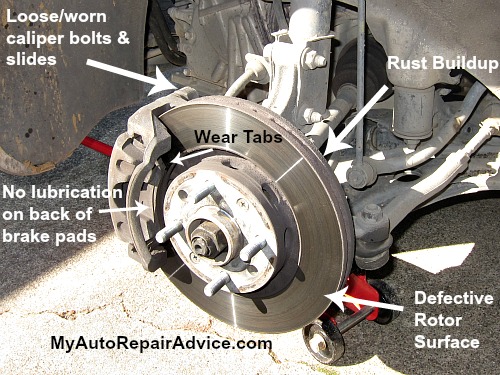
When brakes squeak but the pads appear to be fine, it indicates that the issue might not be with the brake pads themselves but with other components or factors affecting the braking system. Several reasons could be behind this noise, including worn-out or dirty brake components, improper installation, or issues related to the brake's operational environment.
Possible Causes of Squeaking Brakes
The squeaking noise from the brakes, despite the pads being in good condition, can be attributed to various factors. One primary reason is the presence of debris or dirt on the brake rotors or drums. When dirt or dust accumulates on these parts, it can cause the brakes to squeak.
You may be interested in reading How to Deal with Fiat Punto Gearbox Bearing Failures
How to Deal with Fiat Punto Gearbox Bearing Failures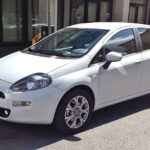 Maintaining the Fiat Punto's Battery Life and Charging System
Maintaining the Fiat Punto's Battery Life and Charging System- Debris accumulation on brake rotors or drums
- Wear on other brake components like the rotors or drums
- Presence of moisture or corrosion on brake parts
Impact of Environmental Factors
Environmental conditions can significantly affect the braking system's performance and noise level. For instance, high humidity or exposure to salt in coastal or snowy areas can lead to corrosion on brake components, resulting in squeaks.
- Corrosion due to moisture exposure
- Temperature fluctuations affecting brake material
- Contamination from road debris or chemicals
Maintenance and Inspection
Regular maintenance is crucial to identify and address the root cause of squeaking brakes. It involves inspecting various brake components, not just the pads, to ensure they are in good condition.
- Inspecting brake rotors or drums for wear or damage
- Checking for proper lubrication of brake components
- Ensuring correct brake pad installation and material
What should I spray on my brakes to stop squeaking?

When dealing with squeaky brakes, one of the most common and effective solutions is to apply a lubricant or a specific type of spray designed for brake systems. The primary goal is to reduce the friction between the brake pads and the rotors or drums, which is often the source of the squeaking noise. One should look for products that are specifically designed for brake systems, as they are formulated to withstand the high temperatures generated by the braking process.
Causes of Squeaky Brakes
Squeaky brakes can be caused by a variety of factors, including worn-out brake pads, improper installation of brake components, or the presence of debris or moisture on the brake rotors or drums. Understanding the root cause of the squeak is crucial in determining the most effective solution.
- Inspect the brake pads for wear and tear.
- Check for any debris or rust on the rotors or drums.
- Verify that all brake components are properly installed and tightened.
Types of Sprays for Squeaky Brakes
There are various sprays available that can help alleviate squeaky brakes, including silicone-based sprays, brake lubricants, and brake quiet sprays. These products work by reducing the friction between moving parts and can be applied directly to the back of the brake pads or other relevant areas.
- Silicone-based sprays provide a durable and high-temperature-resistant lubrication.
- Brake lubricants are specifically designed for use on brake components and can be applied to the back of the brake pads.
- Brake quiet sprays contain ingredients that help dampen vibrations and reduce noise.
Precautions When Using Sprays on Brakes
While sprays can be an effective solution for squeaky brakes, it's essential to use them judiciously and follow the manufacturer's instructions. Overuse or misuse of these products can lead to other issues, such as reduced braking performance or contamination of brake components.
- Always read and follow the instructions on the product label.
- Avoid spraying lubricant directly onto the brake rotors or drums.
- Test the brakes after applying any spray to ensure they are functioning properly.
Frequently Asked Questions
What are the common causes of brake squeal in the Fiat Punto?
Brake squeal in the Fiat Punto is often caused by worn-out brake pads, warped rotors, or improper brake pad installation. Other factors include excessive heat, moisture, or contamination on the brake components. In some cases, the issue may be related to the brake pad material or the rotor's surface finish. Inspecting the brake system and addressing these potential causes can help resolve the problem.
How do I diagnose brake squeal issues in my Fiat Punto?
To diagnose brake squeal issues, start by inspecting the brake pads for wear and checking the rotors for warping or excessive wear. Listen for the squeal when applying the brakes at different speeds and pressures. Check for any signs of contamination or corrosion on the brake components. You can also test the brakes on a quiet road to isolate the source of the squeal.
You may be interested in reading How to Deal with Fiat Punto Gearbox Bearing Failures
How to Deal with Fiat Punto Gearbox Bearing Failures Maintaining the Fiat Punto's Battery Life and Charging System
Maintaining the Fiat Punto's Battery Life and Charging System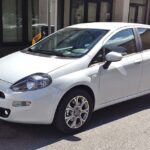 Common Fiat Punto Cooling System Issues and How to Fix Them
Common Fiat Punto Cooling System Issues and How to Fix ThemCan I fix brake squeal issues in my Fiat Punto myself?
You can attempt to fix brake squeal issues yourself by inspecting and cleaning the brake components, replacing worn-out brake pads, or resurfacing the rotors. However, if the issue persists or you're unsure about the diagnosis, it's recommended to consult a professional mechanic. They can provide a more accurate diagnosis and perform the necessary repairs to ensure the brake system functions properly and safely.
Will replacing brake pads resolve the brake squeal issue in my Fiat Punto?
Replacing brake pads may resolve the brake squeal issue if the problem is caused by worn-out pads. However, if the issue is related to warped rotors, improper installation, or other underlying causes, replacing the brake pads alone may not fix the problem. It's essential to inspect the entire brake system, identify the root cause, and address it accordingly to prevent the squeal from recurring.
If you want to know other articles similar to Addressing Brake Squeal Issues in the Fiat Punto you can visit the category Fiat Punto.
Leave a Reply

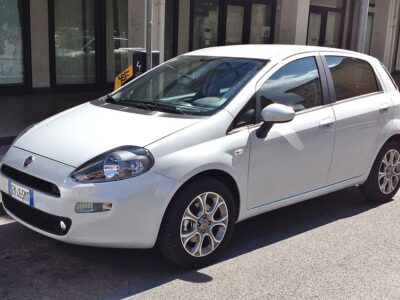
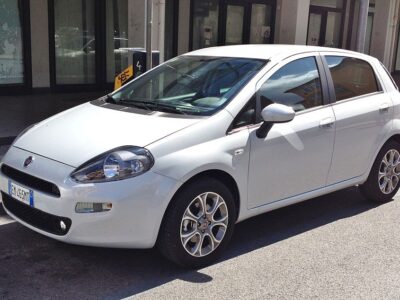
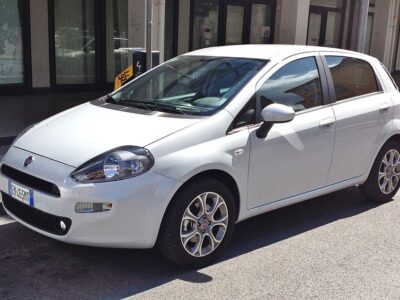

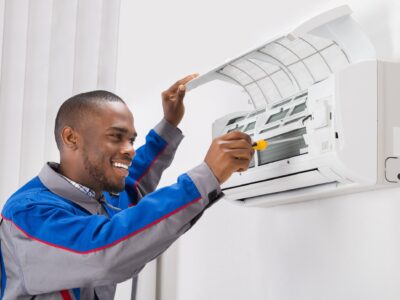
More content of your interest